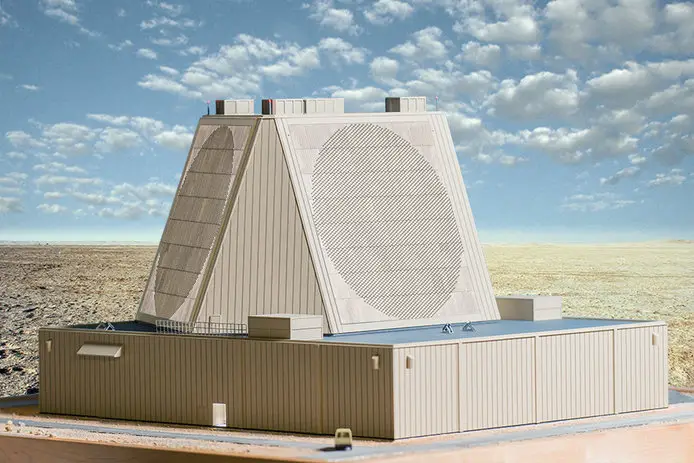Raytheon Co., Woburn, Massachusetts, has been awarded a $13,648,819 firm-fixed-price modification to contract FA8730-17-C-0010 for Qatar Early Warning Radar (QEWR). This modification is for the procurement, manufacture and storage of spares in support of sustainment for the QEWR. Work will be performed in Andover, Massachusetts, and is expected to be completed by December 2025. This modification brings the total cumulative face value of the contract to $1,137,800,144. This modification involves 100% Foreign Military Sales (FMS) to the country of Qatar. The U.S. Air Force Life Cycle Management Center, Hanscom Air Force Base, Massachusetts, is the contracting activity.
The sale of AN/FPS-132 Block 5 Early Warning Radar (EWR) to Qatar under the FMS program was announced in 2013. The A/N FPS-132 is a solid-state, phased-array long-range radar designed to provide detection, attack warning, and attack assessment of sea-launched ballistic missiles and intercontinental ballistic missiles (ICBMs) launched against the western continental US and allied nations. Capable of operating in the ultra high frequency (UHF) band, the radar can also support space surveillance network (SSN) by offering radar surveillance and tracking data on newly-launched and orbiting space objects. Three A/N FPS-132 radars are currently located at California, Greenland and UK.
Raytheon won a “.06 billion deal to provide a Qatar Early Warning Radar (QEWR) to Doha in February 2017. The Qatari radar is expected to add long-range detection to the country’s layered Integrated Air and Missile Defense architecture, which includes Patriot systems and an Air Defense Operation Center. A layered defense takes fuller advantage of the specialized abilities of different radars and interceptors. The QEWR will provide extra warning time to alert command centers and cue fire control systems. The QEWR is designed to operate 24 hours a day, 365 days a year, with minimal personnel requirements.
The procurement of an air defence system is expected to offer a permanent defensive capability to the Qatar Peninsula, and enhance protection of the country’s well-being and economic infrastructure. In addition, the system will help strengthen Qatar’s ability to defeat current and future threats in the region and reduce dependence on the US forces. The potential sale also directly contributes to the foreign policy and national security of the US by enhancing the security of Qatar, which continues to serve as an important force for political stability and economic progress in the Middle Eastern region.
















